2023 Harmony College
It’s almost Spring Convention time, which means Rocky Mountain Harmony College is upon us!!
Read on for class details, faculty bios, and much more.
Get excited! And if you haven’t registered, do so today!
Dates: Friday, April 21 through Saturday, April 22, 2023
Location: Little America, Cheyenne, WY
Convention/RMHC registration is live! Please use this link to register:
https://www.eventbrite.com/e/rocky-mountain-harmony-college-2023-tickets-520951950307
Please note: Registration is $89 until March 25; $99 until April 8, and $119 after that. Youth (25 and under) is only $59!
For complete details about the weekend, please visit the Spring Convention page.
Detailed Agenda
Note 1: Quartet and Chorus coaching sessions will be communicated directly to the participants
Note 2: See instructor bios, lower on this page, for course descriptions
Friday, April 21
- 9am: RMD Board Meeting
- 10:30am: RMD House of Delegates Meeting
- 12:30pm-2pm: Harmony Platoon Session 1
- 1:00pm-1:50pm: RMHC Class Block 1
- How to Sing Pauses (Koller)
- Building a Youth Camp (Suellentrop)
- Personal Performance Instruction (Pozsgay)
- 2:00-3:20pm: RMHC Class Block 2
- Mind vs. Heart (Lagos)
- Music Theory 101 (Wigginton)
- Open Vocal Symposium (Hebert)
- 4:00pm: First round of International Preliminary Quartet Contest
- 6pm: Dinner break
- 7:00pm: Prelims Round 2
- Approx. 9:30: Contest Results announced!
- Approx. 10pm-??: Tag time and socializing!
Saturday, April 22
- 8:00am: General Session
- 8:30-9:20am: RMHC Class Block 3
- The Quartet Experience (Suellentrop)
- The Paradoxes of Singing (Outerbridge)
- The Vowel Tree (Lagos)
- Coaching Under Glass (Wigley + Studio Talk)
- 9:30-10:50am: RMHC Class Block 4
- Great Moments from the Judges’ Table (Wigley)
- Fundamentals of Directing (Wigginton)
- Prelims Contest Review & Discussion (Clark & Bjork)
- Is this arrangement good for us? (Koller)
- 11:00-11:50am: RMCH Class Block 5
- Music Director’s Seminar (Wigley)
- Open Vocal Symposium (Hebert)
- Visual Expression (Pozsgay)
- Coaching Under Glass (Outerbridge + Shoot the Moon)
- 11:00-12:30pm: Harmony Platoon Session 2
- 12:00-1:30pm: Lunch (on your own)
- 1:30-2:20pm: RMHC Class Block 6
- Open Vocal Symposium (Hebert)
- Vulnerability (Brown)
- Form & Performance (Koller)
- 5 Steps to Efforless and Impactful Singing (Wisniewski)
- 2:30-3:50pm: RMHC Class Block 7
- Comedy (Clark)
- Tune it or Die (Drown)
- Beginning Arranging (Outerbridge)
- Coaching Under Glass (Mischief + Fortino)
- 4:00-4:50pm: Midtown Masterclass (Drown + Midtown)
- 5:00-5:50pm: RMHC Class Block 8
- Running an Effective Rehearsal (Wigley)
- Turning Fear Into Fun (Brown)
- Cracking the Code on Consonants (Wisniewski)
- Coaching Under Glass (Pozsgay + Ember)
- 6pm: Dinner break (on your own)
- 8pm: Saturday Night Spectacular! Featuring Midtown! Followed by Afterglow and tag singing until dawn!
Faculty Bios and Course Descriptions

Patrick Brown
Patrick Brown first started in barbershop in 1998, and has spent many years as a member and performance coach for Toronto Northern Lights. Combining almost 20 years of barbershop with over 20 years of theatre experience, Patrick has coached groups around the world in BHS, SAI and HI. He has served on Faculty for Harmony Colleges in one or both of Germany and the Netherlands many times. He certified as a Performance Judge in 2019 and is very excited for his first visit to RMD.
Turning Fear Into Fun
This class is for people who struggle with nervousness or fear on stage, which is – surprise – almost all of us! This class will dig into where those fears come from and provides some strategies and techniques to build confidence and character.
Vulnerability: Not as Scary as it Seems
Much is said about vulnerability and it has a tendency to worry people. This is mostly because we have no idea what it ACTUALLY means to be vulnerable. This class will simplify what it means to be vulnerable and how to achieve it (spoiler alert: it doesn’t necessarily mean bawling your eyes out on stage).
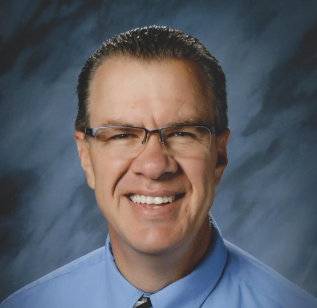
Darin Drown
Darin Drown is in his 18th year teaching choir at Grandview High school in Aurora, CO in the Cherry Creek School District, and 30th year of teaching. His choirs have consistently received the highest ratings at festivals around the United States and have been featured performers at the Colorado Music Educator’s convention several times. In addition, Darin directed the 120-man Sound of the Rockies barbershop chorus to 7 medalist performances in international competition in the Barbershop Harmony Society, reaching as high as 3rd place. Darin has traveled all over the world coaching men’s and women’s acapella quartets and choruses. He also sings in Storm Front, the 2010 International Champion barbershop quartet. He has been named Teacher of the Year in two different schools over his career, as well as a District Teacher of the Year. He took over directing responsibilities for the Velvet Hills Show Chorus in Colorado Springs for the past three years.
Tune it or Die!
This class is about Just intonation, which is a hallmark of the barbershop style. You will learn why and how we tune the way we do.
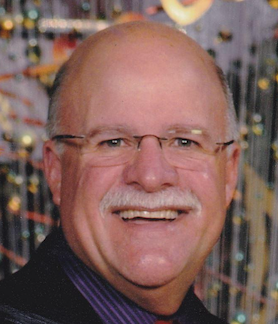
Chris Hebert
Chris received his Bachelor of Music in Vocal Performance degree from San Jose State University. He has been a voice instructor, studio musician and professional vocalist, having performed with the San Francisco and Oakland Symphonies.
Having joined the Barbershop Harmony Society in 1975 as a member of the Peninsulaires Chorus, he moved to the San Jose, California Garden City Chorus in 1987 and was their director from 1990 to 2004, leading them to the Far Western District chorus championship in 2002. He directed the Voices in Harmony Bay Area chapter from 2012 to 2017, taking them to the International chorus contest three times.
Chris is a BHS certified Singing Category Judge (30 years) and a two-time Singing Category Specialist from 2000-2003 and 2010-2012. As such, he is a highly sought-after coach for both BHS and Sweet Adeline quartets and choruses.
Open Vocal Symposium
Anyone can bring their voice or vocal concerns, questions, inquiries, etc. and we can discuss them. Can do short individual vocal coaching as well during this time if folks are having vocal issues. Best part is that nothing other than a room with chairs is needed.

Alexander Koller
Alexander Koller is a Candidate Music Judge in the BHS and a co-founder of the BinG! Coaching Certification Program and the European Harmony Brigade. He caught the barbershop bug in the Big Apple Chorus during a one-year visit to New York, and has sung and competed in quartets ever since. Alexander has taught and coached at barbershop events in Germany, the US, and the Netherlands, and looks forward to meeting everyone at RMD.
How to sing pauses
“Music is the silence between the notes”, says Debussy – and indeed, all of us have experienced the deep emotional impact that a pause in the music can have. But how do you sing silence? How long does a pause need to be? What do you do during the pause?
In this course, we will look at why people pause when they communicate and what emotion a pause can convey in barbershop singing. We’ll examine pauses of gold medal performances and investigate together what makes them more or less successful. And we will explore techniques that can help us to make pauses in our own performances more impactful.
Form and Performance
Although a song consists of multiple repetitions of verses and choruses, we do not want the song to be repetitive. From both a musical and a performance perspective, we want to bring the song to life by telling a story, and this story changes and develops from verse to verse and chorus to chorus. We will talk about how to recognize the form of a song and how to build a great performance on it.
I’ve also been thinking about a new class that might be interesting; this could probably be 50 or 80 minutes. It is the positive version of my “why on Earth did you pick this arrangement, this does you no favors” reaction that I frequently feel as a coach.
Is this arrangement good for us?
Have you ever picked up an arrangement of a song that you love, only to find out that your quartet or chorus struggled with it technically or just never really got into it for some other reason? In this course, we will explore some strategies for finding out early whether an arrangement will be great for your group. We will look at some example arrangements together, so basic music reading skills will be helpful.
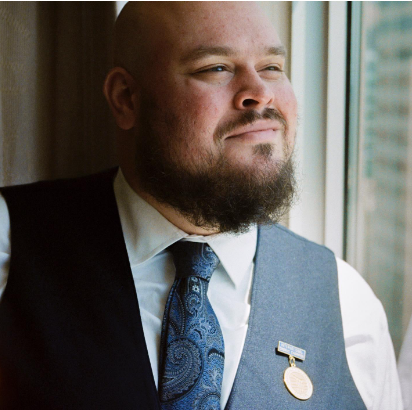
Will Lagos
Will (he/him) is a Los Angeles based singer, actor, vocal arts educator, and acting coach with over 20 years of professional singing and acting experience. Will attended the University of Southern California’s School of Theater where he completed training in the Bachelor of Fine Arts in Acting program.
Will is an active barbershop singer, currently serving as Music & Performance Director of international barbershop champion chorus The Westminster Chorus. He is a sought-after clinician and coach, working with choruses like Central Standard, Vocal Standard, Toronto Northern Lights, and Parkside Melody, and with quartets like The Ladies, GQ, and The Newfangled Four. Will also teaches barbershop performance and singing technique while on faculty at Harmony University in New Orleans and while evaluating singers as a candidate judge in the Performance Category for the Barbershop Harmony Society.
Will can also be heard as a vocalist on film scores, international albums, children’s music education materials, and even croaking out alien drinking songs at Galaxy’s Edge at both Disney resort properties. Will currently serves on the faculty at the California School of the Arts – San Gabriel Valley, where he teaches musical theater repertory & technique, vocal arts, scene study, and theater history.
Mind vs Heart: The 5 Keys to Performance
As performing barbershop evolves, singers require updated tools that can allow them to interact with material in a way that feels natural and brings them closer to authentic expression. This class teaches the differences between performing in the Mind and the Heart, and gives 5 easy-to-follow steps to keep you in the heart space in rehearsals, on stage, and even in your everyday life.
The Vowel Tree: Connecting Resonance Space, Lyric, and the Body
The singer must realize that their voice isn’t their instrument – rather, it is the entire body! Discover The Vowel Tree, a resonance map of the body that combines sound, lyric, and personal meaning all in one meditative exercise. Discover where certain vowels and pitches live in the body, and link those sounds to meditative thoughts and exercises, so that your entire self can be expressed the next time you perform any sort of music.

Cay Outerbridge
Cay is a Boston-based voice teacher, choral conductor, vocal arranger, learning track producer, quartet singer, music educator, and lifelong learner. He runs the vocal ensembles at Gann Academy, serves as the musical director for Vocal Revolution, the NED champion chorus, and sings bass in Daily Special, an internationally competing quartet. He uses his wealth of experience to help singers of all skill levels improve their performance, tailoring his approach to the specific needs of the individual or ensemble.
The Paradoxes of Singing
Are there questions about singing that keep you up at night? Why are you being told to do opposite things? It’s so confusing!
In this class, we’ll dive into the seemingly paradoxical approaches to singing, teaching singing, and thinking about singing. More air AND less air? Brighter AND Darker? Sing freely AND blend in? Be aligned AND perform? And more. Come hear my best explanations of these confusing conundrums.
Quartet Communication & Rehearsal Techniques
In this class, we will examine the crux of quartetting: The Rehearsal. We’ll discuss how to prepare for and structure a rehearsal, how to talk to each other in a way that facilitates a positive rehearsal environment, and helpful exercises to leave singing and feeling better than when you arrived.
Throw Out the Sandwich! – How to Give Honest Feedback
For musical leaders, delivering feedback is the most important skill we have. In this class, we’ll examine different kinds of feedback, the feedback process, and word choice. You’ll leave having the tools to provide effective, honest feedback that lifts up the recipient and gets results.
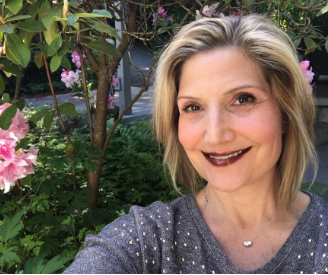
Judy Pozsgay
Judy Pozsgay has been a certified Performance judge since 2019 and has been involved in barbershop for 29 years, having served as the Artistic Director, Assistant Director and Choreographer for Sweet Adelines International choruses Lions Gate and A Cappella Joy. Judy also sings bass in the SAI 2017 International Champion Quartet, FRENZY. She has served on the faculty for Harmony University, Harmony College Northwest, BING and LABBS, as well as being International Faculty for SAI (and a SAI Visual Communication Judge) and teaching at many SAI schools over the years. Judy is a full-time vocal and visual performance coach and works with ensembles all over the world, inspiring them to reach their full potential as performers who can better connect with their audiences with energy, authenticity and provide high entertainment value.
Visual Expression
A performer’s physicality and facial expressions are a large part of the communication of a song. Through interactive exercises, this class explores how we as performers might visually express authentic and believable connection to our audiences.
Personal Performance Instruction
Class introduces the PPI – the process of providing individual feedback on performance with the goal of increasing performance awareness and encouraging individual singer responsibility. Includes demonstration of PPI’s on volunteer class participants.
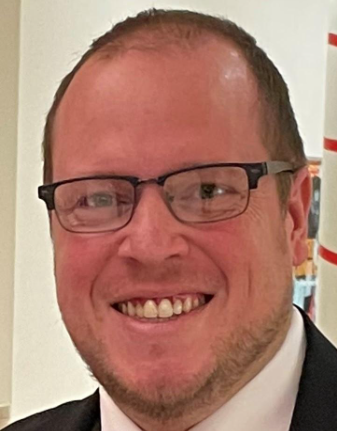
Matt Suellentrop
Matt Suellentrop (tenor) started singing barbershop in 2006 while a senior in high school with the Ambassadors of Harmony (AOH) chorus and has won three gold medals with the group. He has sung in two previous Central States District quartet champions, Progression (2010) and Dominant Prep (2012). With AOH, he has served as tenor section leader, board member at large, membership VP and music & performance VP. He spent two years living in Cincinnati, where he sang with the mighty Southern Gateway Chorus.
Now back in St. Louis, he works as the General Manager of food service for Webster University. He loves the outdoors, using his free time to camp, kayak and hike whenever he can. Matt has held multiple administrative roles within the Central States District and currently serves as the District President. At the Society level, Matt was a part of the Impact Alignment Team, and is a certified Administrative Judge.
Most importantly, he shares his love of music and barbershop with his love, Joy. No slouch herself, Joy is a gold-medal baritone in Harmony, Incorporated with Spot On (2013), and currently sings with her quartet, Fierce. She is also the current Convention Chair for the Central States District. Together they spoil their 1-year-old son, Dean to no end, making sure he’s fully immersed in the barbershop experience!
Building a Youth Camp
Learn about the key things needed to run a successful youth camp.
The Quartet Experience: For Youth & “Former Youth” Enrichment
Let’s talk about all things quartetting! From maximizing your quartet experience to establishing youth programs at the chapter level, and everything in between!

Tyler Wigginton
Tyler Wigginton, a Denver native, is an avid music-maker, gamer, and member of the music community in Colorado and across the globe. He graduated in 2017 from Metropolitan State University with a B.A. in Musical Composition, where he also studied voice and piano. During his time at MSU, he was invited to participate in the International Summer Academy of Music in Germany, where he placed 2nd overall in the Joseph Dorfman Composition competition in 2016. His compositions have been performed by professional musicians from around the world, including the Playground Ensemble.
Tyler regularly sings Bass in the St. Martin’s Chamber Choir and other ensembles in the Denver Metro Area. He is also extremely active in the Barbershop Harmony Society, where he directs The Timberliners and The Sound of the Rockies, and is a judging candidate. His prior quartets have placed as high as 13th in the world and have allowed him to travel and perform for audiences all across the U.S. When not making music Tyler loves playing tabletop RPGs, rock climbing (both indoor and outdoor), and making video games!
Fundamentals of Directing
In this class we will focus on the fundamental skills of directing an ensemble. This class will be useful whether you are interested in directing your own chorus one day, or want some good rehearsal tools as a section leader or budding director! Topics covered will include: conducting patterns, basic melding, score prep, rehearsal techniques, and diagnosing errors. Be ready to wave your hands!
Music Theory 101
In this course we will focus on some fundamental elements of music theory and how they relate to barbershop. If you are looking for a reason to start digging further into music theory, but don’t have a good jumping off point this class is for you! Topics covered will include: chord construction, the circle of fifths, basic musical structure and form, voice leading, etc. Sheet music will be provided, but not ibuprofen (for the potential headache after).
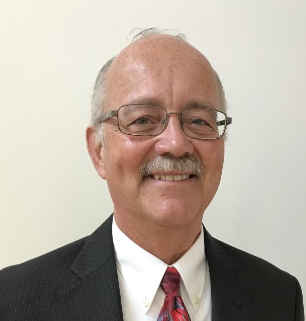
Paul Wigley
Paul Wigley graduated from the University of Minnesota in Music Education and received his Master’s degree in Music Education from the University of Northern Iowa in 1997. Paul recently retired from teaching choral music, advanced placement music theory, and class guitar at Lakeville (MN) North High School. His Lakeville HS vocal jazz ensemble received numerous regional honors. Under the direction of Mr. Wigley, the Lakeville North High School Chorale toured extensively in Europe, with tours including Wales, England, Italy, Austria, Spain, Germany, Czech Republic, and France. He previously taught for the Algona (IA) Community School district, which was the recipient of the Iowa Exemplary Music Program Award in November of 1998. He has delivered lectures on vocal jazz, and barbershop harmony, to many colleges and choral directors’ associations throughout the Midwest.
Paul judged the International Barbershop Harmony Society quartet and chorus contests in 1991, 1994, 1997, 1999, 2002, 2008, 2011, 2014, 2015, 2016, and 2019. He has also taught at Barbershop Harmony Society Directors Colleges in New York, Maryland, Kentucky, Wisconsin, Missouri, Washington and California, and served on the National Youth Outreach Committee. Paul has been clinician for barbershop Youth in Harmony festivals in Minnesota, Nebraska, Iowa, and Wisconsin, and he recently retired as the director of the Minneapolis Commodores, who qualified for the International barbershop chorus contest in 2007 and 2009. He was Category Specialist in the Music category of the Barbershop Harmony Society judging system from 2013-2016
His family includes his wife, Becky, who is a retired teacher from the Lakeville school district, and daughter, Sarah, who is currently an associate professor of voice, and Musical Theatre department head at the University of Illinois in Champaign/Urbana.
Great Moments from the Judges’ Table
Highlights of memorable (and controversial) performances while judging 12 International contests from 1991-2019
Music Directors Seminar
Topics and discussions about issues unique to directors (and assistants). Based upon 14 years of directing the River City Chorus (Mason City, IA) and the 20 years directing the Minneapolis Commodores
Running an Effective Rehearsal
How to prioritize issues occurring during rehearsal, how to plan for effective rehearsal, how to deal with the enormous amount of data being thrown at you as you stand in front of a chorus
Vocal Improvement Class
New vocal techniques and clarification of ‘old’ techniques, based on Estill Voice Training

Ryan Wisniewski
Ryan Wisniewski has been a member of BHS since 2011. He started out his barbershop journey in the Far Western District, where he served a number of roles as a member of five different chapters, was fortunate to win a number of gold medals with both The Westminster Chorus and Masters of Harmony, as well as find great success with The Newfangled Four, 2013 International Collegiate Champions and perennial Top 10 quartet finalist. Since relocating to Dallas, TX, he has taken up a position as the Private Vocal Instructor of the Vocal Majority, teaches private voice part time within the Anna ISD, and is a well sought after coach and clinician within the Southwestern District. Ryan became a certified SNG judge in 2019 and is looking forward to his first time judging in RMD!
5 Steps to Effortless and Impactful Singing
We all admire singers and artists in and outside of the barbershop world who make it look easy, but how can we apply even an ounce of what they do to our own individual singing? Join this class as we break down a simple and digestible 5-step process that looks into understanding the music we choose to sing and how to honor it in a more authentic, natural, and accessible way.
Cracking the Code on Consonants
Most singers understand the value of vowels and how they contribute to our overall singing, but how often do we hear about the benefit of consonants? This class will break down the various consonant sounds we make, how they are formed physiologically, and why understanding this information will make the most out of the vocal choices you make through your music.
